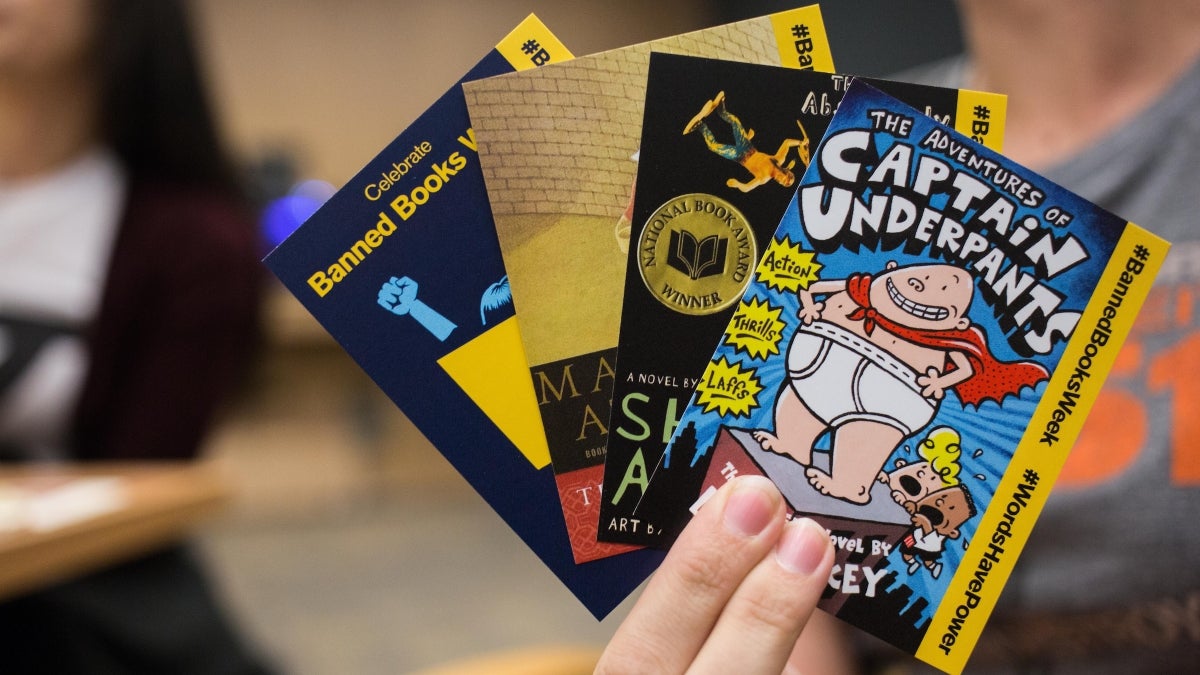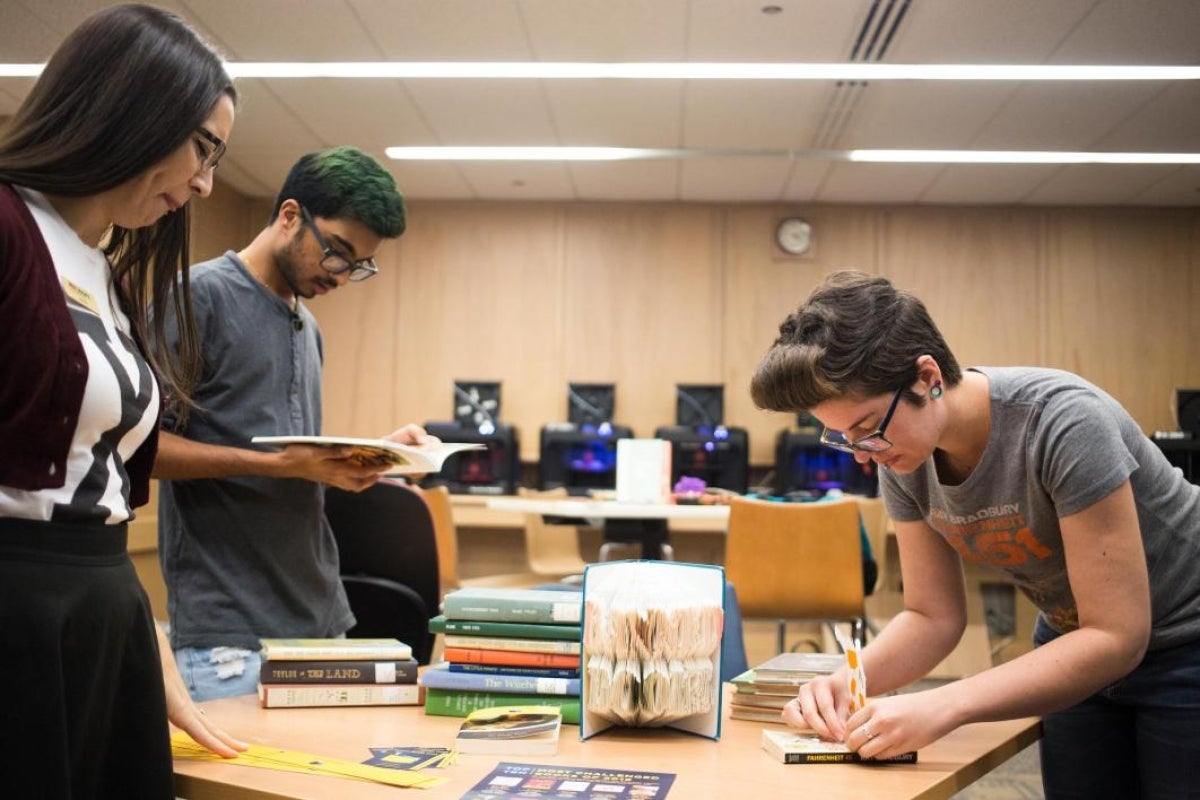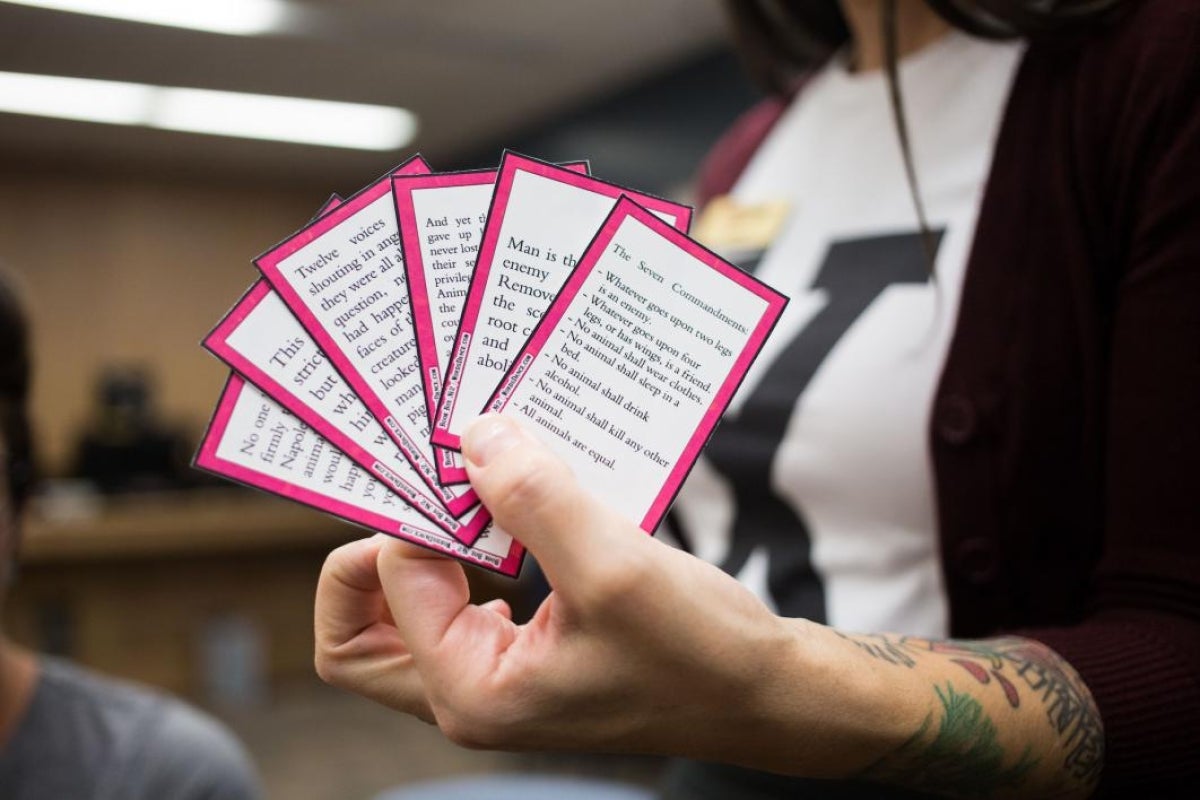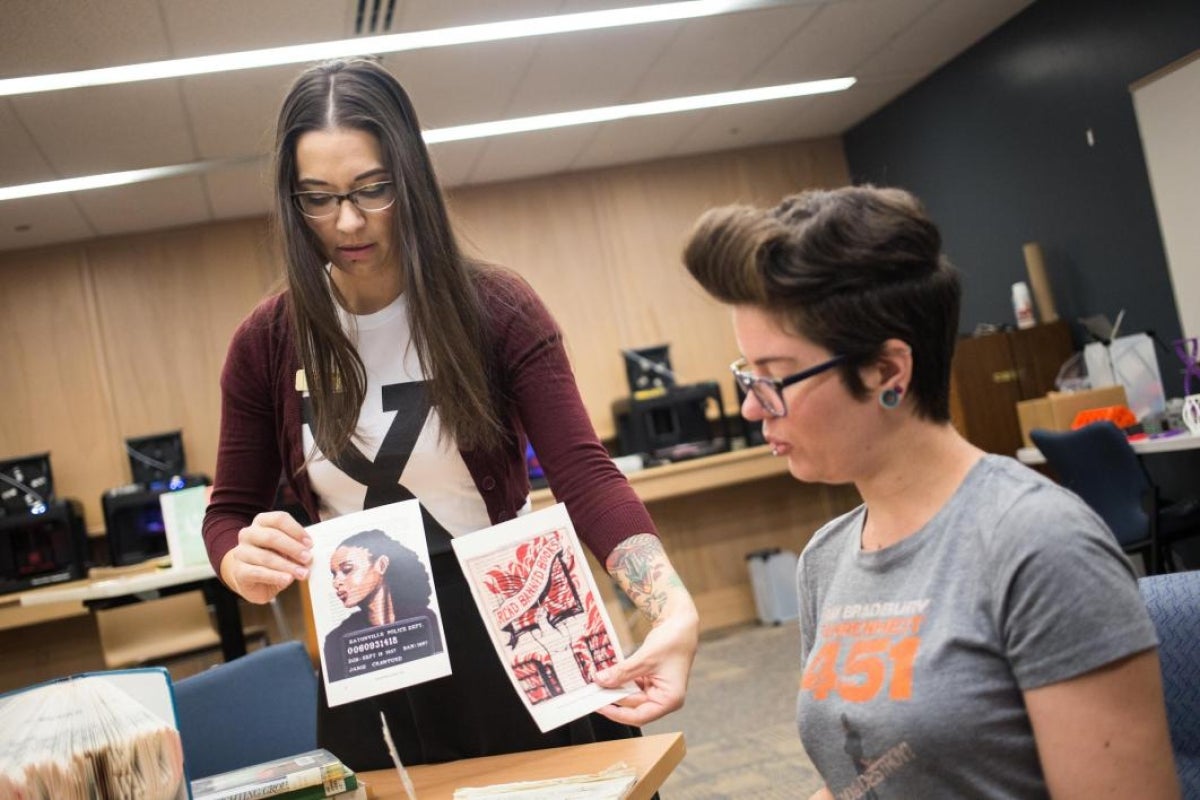When students at Arizona State University enter the library this week, they will be greeted by an unusual sign: “Don’t read these books.”
The sign, directing students to a display of books that have been banned or challenged throughout history, is intended to mentally jolt — cue the record scratch — even the most distracted Sun Devils.
This is the tongue-in-cheek tradition of Banned Books Week, an annual, cautious celebration of books and our right to read them.
“Banned Books Week is probably one of the most important events in the literary profession,” said Ashley Gohr, a First Year Experience librarian with ASU Library. “It’s a week when librarians, publishers, teachers and writers help to educate our communities by inviting deeper conversations about censorship and the power of words and storytelling, especially for marginalized communities.”
ASU Library is looking to open up the event this year to an even larger audience through social media, book displays and other activities that encourage thinking around free speech and about books as a powerful technology.
Gohr said that although the practice of banning books is very serious and concerning, the ASU Library events this week will offer “small acts of creative defiance” that are not only educational but fun too.
Video by Deanna Dent/ASU Now
Language, sex and race
Books get banned, restricted or challenged for a variety of reasons, Gohr said, but offensive language, sexual content and racism are among the most common.
Just last year, more than 300 challenges to books were recorded by the American Library Association (ALA), a figure that does not include all the censorship attempts made to films, exhibits, newspapers, magazines, broadcasts, plays and performances.
Famously banned books include “The Adventures of Huckleberry Finn” by Mark Twain (language, racism), “The Absolutely True Diary of a Part-Time Indian” by Sherman Alexie (language, violence, sexual content) and “Their Eyes Were Watching God” by Zora Neale Hurston (sexual content).
Walt Whitman’s “Leaves of Grass” was once described as “filthy” by some mid-19th-century booksellers.
The impulse to censor, Gohr said, is a direct response to the inherent power ideas hold and the strength of books to spread them.
“Books are thought of as dangerous, and they are! They contain ideas and stories that can change minds and lives,” she said.
Video by Deanna Dent/ASU Now
#WordsHavePower
#WordsHavePower is the tagline for this year’s Banned Books Week, an ALA-sponsored event that ASU Library plans to highlight with increasing force each year.
Plans to grow the annual event include a speaker series, a reading flash mob and public readings of censored work on all of ASU’s campuses.
This year, Gohr and fellow ASU Library staffer Ashley Barckett have been busy pulling books from library shelves — “as many as we can fit,” they said — to include in the Hayden Library banned-book display.
The ragtag collection includes such classics as “The Handmaid’s Tale” and “Beloved” and sits alongside a reading nook where the ASU community is encouraged to linger, interact and explore the books “in question.”
Additionally, Gohr and Barckett have put together a banned-book scavenger hunt and set up a button-making station in the Hayden Library mkrspace, for those #RebelReaders who want to wear their Toni Morrisons and Ralph Ellisons on their sleeve.
There will also be displays at the libraries on the West, Polytechnic and Downtown Phoenix campuses.
“This is a great opportunity to celebrate the library as a place of access, discovery and inclusion — particularly at an institution like ASU,” said Barckett, a library information specialist. “Many of our international students come from countries that have different views on censorship, and books are still challenged and banned regularly in the U.S. This event is as relevant as ever.”
Barckett and Gohr said they will be wearing buttons and T-shirts throughout the week that signify banned authors and books, such as “The Autobiography of Malcolm X” and the book-burning “Fahrenheit 451,” which, Gohr said, might be the most ironic banned book of all.
"It's about banning books," she said.
Top photo: ASU librarian Ashley Gohr holds up cards that list the reasons why specific books were banned, in anticipation of a display for banned books at Hayden Library. Photo by Deanna Dent/ASU Now
More Arts, humanities and education

Grammy-winning producer Timbaland to headline ASU music industry conference
The Arizona State University Popular Music program’s Music Industry Career Conference is set to provide students with exposure to exciting career opportunities, music professionals and industry…

ASU Gammage brings the best of Broadway to the 2025–26 season
ASU Gammage has announced its 2025–2026 Desert Financial Broadway Across America-Arizona season with a lineup of Broadway shows that includes a mix of new productions, classics and comedies. “…

March Mammal Madness hypes science, storytelling in the classroom and beyond
In classrooms throughout the country, the buzz around March Mammal Madness starts long before the tournament begins. For middle school science teacher Jessica Harris, students wonder which…



